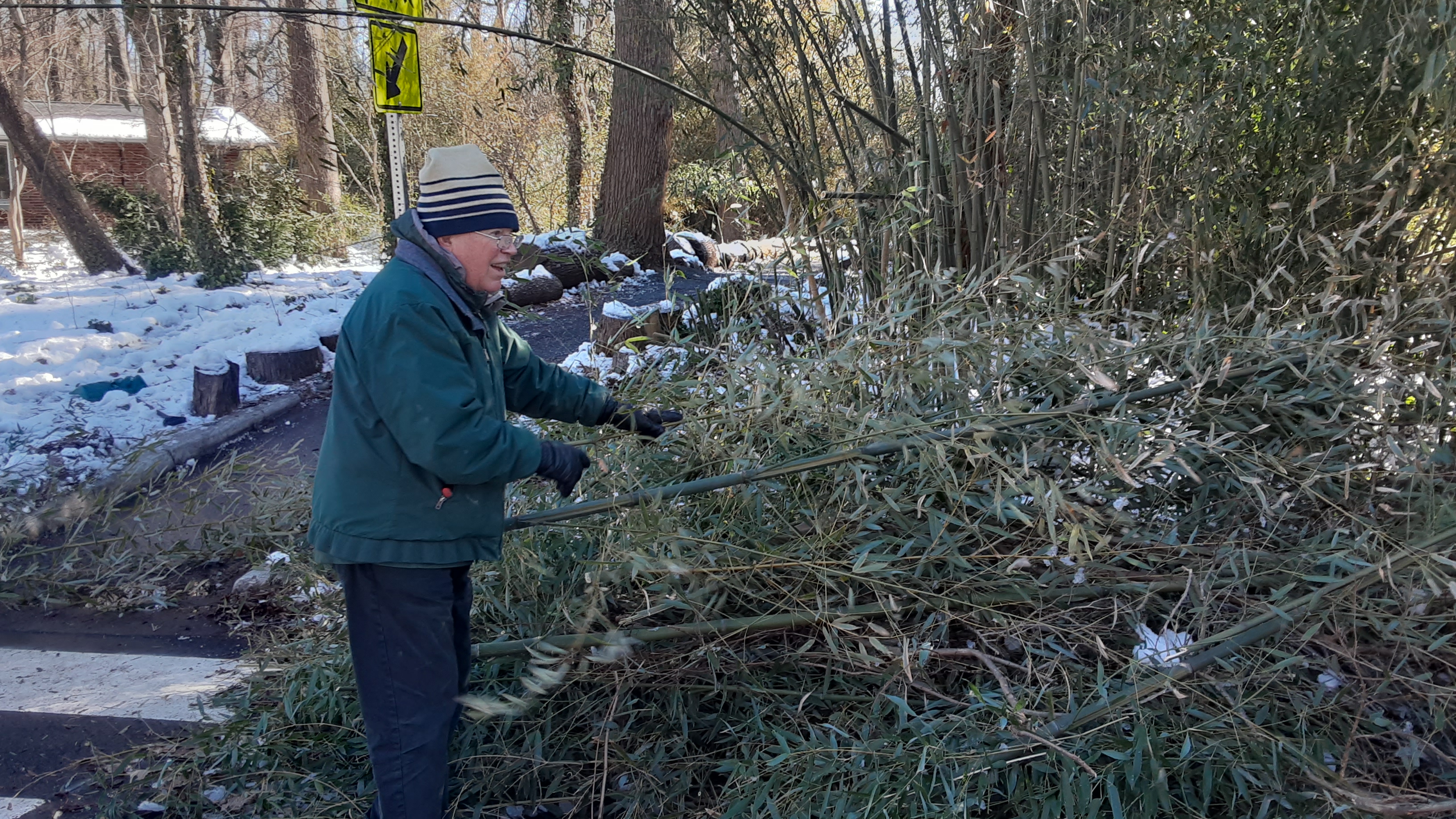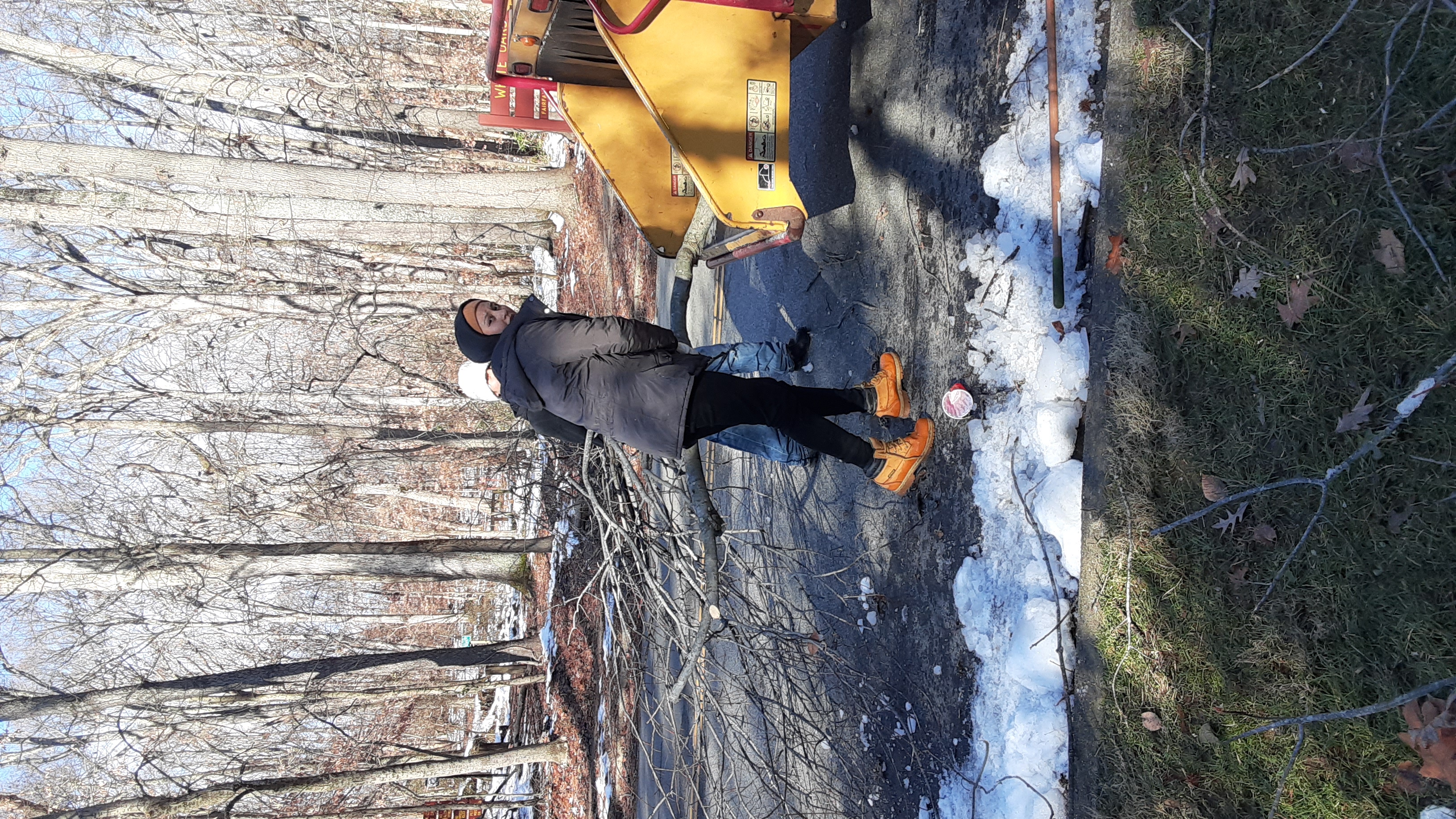 Charlie Chadbourn
Charlie Chadbourn
“This bamboo came down, you could not have walked on the pathway,” Chadbourn said. “Me and the crew with the school,” cleared it, he added. Chadbourn was among many people addressing downed trees after the latest spell of wintry weather that struck last week. The heavy, wet snow brought trees down, blocking sidewalks and streets throughout the area. That goes for bamboo groves as well. “The tree companies hadn’t been through here yet,” he added.
They were right around the corner though, near Devonshire Road and Paul Spring Road across from White Oaks Park where Chavez Landscaping workers were feeding branches in a portable chipper. “We’re going through the whole neighborhood,” said the crew chief.
The storm left some nearby homeowners without electricity for 36 hours last week.
There were similar situations across the county, but the responsibility for the trees in Northern Virginia is split in several directions. If a tree falls across a road, the responsibility to remove it falls on the Virginia Department of Transportation, but that doesn’t mean they are the only entity that can remove it. Other emergency entities remove trees as well, including the fire department as in the case when a tree blocked Mount Vernon Highway a few days before. Dominion Power has responsibility for trees on their power line properties.
 Chavez Landscaping at work in Hollin Hills
Chavez Landscaping at work in Hollin Hills
During snow season, especially those storms with heavy winds expected, VDOT has crews and contractors ready to assist with tree removal and clearing debris from public roads. Residents can help report unsafe conditions, including downed trees and debris, to the VDOT Customer Service Center at 800-367-7623.
If the trees are on private property, it is the responsibility of the owner to remove it, but if it falls from the neighbor’s yard, it’s the neighbor’s responsibility.
“Keep in mind, the county only manages trees on county property,” said Sharon North of the Fairfax County Department of Public Works and Environmental Services.
On the county website, there is a “Who to Call,” option for homeowners with downed tree questions. “If a tree presents an immediate life-threatening hazard, including falling onto electric wires or it is blocking a public road, call or text 9-1-1,” North said. Fairfax County has no legal authority to require the removal of hazardous trees that are located on private property unless the trees threaten the public at large, it says on the county website.
When there is a dispute between neighbors about a potentially hazardous tree, this is a civil issue and Fairfax County will not take action in these situations, the website said.
The map has an icon for each big tree, and most of the big trees are located in the Great Falls area with a few in Fairfax and only two inside the Beltway. There is one in Mount Vernon near the Mount Vernon Plantation and it is a "Cedar of Lebanon," tree, 88 feet tall, 176 inches around and it was nominated by Richard Salzer, the listing said.
